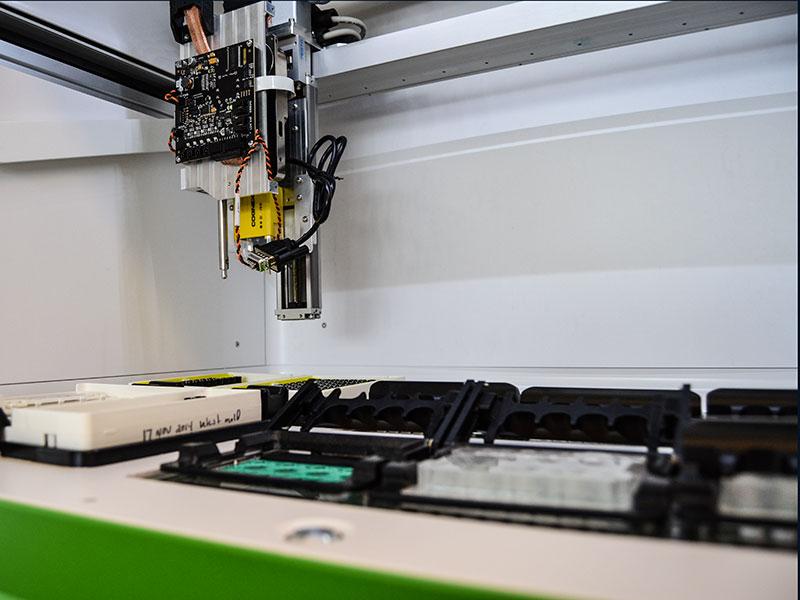A local research company, Rheonix, received a $1.689 million grant from the National Institutes of Health in February to create a more efficient HIV testing instrument for developing countries.
The company was awarded the Small Business Innovation Research Phase II grant after proving the instrument’s feasibility to the NIH. The second phase of the grant gives the company 18 months to complete the development of the product and put it to use.
“We were aware of the fact that NIH was looking to have a test developed for the developing world that would overcome some of the issues for HIV testing in those settings,” Dr. Richard Montagna, senior vice president for Scientific and Clinical Affairs at Rheonix said. Montagna collaborated with Dr. Daniel Malamud, director of the HIV/AIDS research program at New , York University, to apply for the grant with hopes of combining their specialties to improve current testing technologies.
After the NIH heard about the collaboration between the two doctors, the grant program recommended they apply for the fast track of the SBIR grant, Montagna said. The fast track saved the project a year of waiting between phase I and phase II of the grant process.
Malamud developed a dual testing process that eliminates the period of time between testing for the presence of antibodies and testing for the HIV virus, which currently can take up to two weeks. Malamud’s process is lab based and requires numerous laboratory devices and professional technicians. However, when paired with Rheonix’s customary CARD cartridge technology the process ends up taking less resources, can perform both the antibody and viral tests at once and produce results in a little more than an hour.
The HIV testing instrument will be a modification of the CARD technology that Rheonix has trademarked for molecular and immunoassay testing, Montagna said.
“The National Institute of Health is looking to do both tests using the same sample for the same patient in a shorter period of time so they don’t have to get the patient to come back and do the second phase of the test,” Christopher Smith, Rheonix’s CFO and vice president of administration said.

The CARD technology speeds up the process of testing, Smith said. Additionally, the card is made of plastic and can be made inexpensively.
The company plans to expand the technology globally but for now they are focused on the grant’s objective, Steve Pemberton, vice president of marketing and sales at Rheonix, said.
“The grant is centered around making a ruggedized instrument that can be used in countries that don’t have the typical modern health care infrastructure,” Pemberton said.
The cost of implementing the instrument into developing countries will depend on the country and the funding provided by non-profit health organizations.
The “monumental” impact that this technology could have in countries with poor health-care cannot be overstated, the director of programs at the Southern Tier AIDS Program Michelle McElroy said.
“Most people who go to the hospital to get the test done don’t get back because in many cases they had to travel for days to get there in the first place,” McElroy said. “[The testing instrument] could prevent many new infections.”
Currently there is a CARD that can run both of the HIV assays simultaneously but in the next year and a half, Montagna said, the instrument needs to be optimized, validated and approved by the FDA before it can be used.













